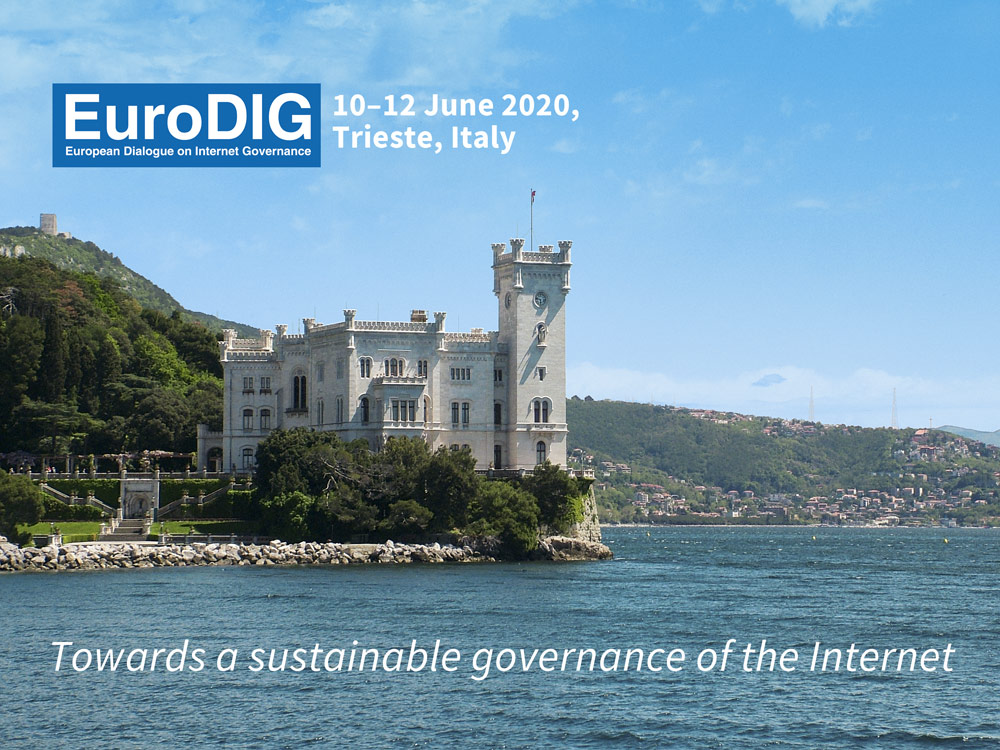Innovative uses of blockchain for public empowerment
11 Jun 2020 11:30h - 13:00h
Event report
The session focused on the innovative uses of blockchain technology for the empowerment of citizens. The discussion addressed benefits in terms of transparency, traceability, and availability of information of blockchain. The lack of interoperability and a common legal framework were highlighted as the main obstacles in the scalability of blockchain. Possible solutions from the European context and energy sector were provided.
Speakers considered blockchain as an enabler of different services. Mr Marco Bellezza, (former advisor of the Italian Minister of Economic Development and CEO of Infratel Italia S.p.A) explained that current efforts of the Italian government go in the direction of combining blockchain with the national digital ID systems. There are currently three different digital ID systems in the country and blockchain could be used to manage digital identities as a potentially unifying solution. Since Italy recently joined the European Blockchain Partnership (EBP); the government has been active in exploring the potential benefits of blockchain for citizens and small and medium enterprises (SMEs). Some examples include pilot projects which use blockchain to track the origins of products and protect the ‘made in Italy’ brand for food and fashion industries.
Bellezza stressed the importance of bringing knowledge of blockchain technology to the governmental levels. There is the need to further develop the capacity of policymakers on blockchain and new technologies, so that they can fully understand the potential of such technologies for citizens and enterprises.
Ms Barbora Greplova (Co-Chair of the Energy Working Group at the International Association of Trusted Blockchain Application [INATBA]) commented on the value of distributed ledger technologies in the energy and other sectors, and the importance of capacity building on new technologies. Although she stressed that blockchain technology is not a silver bullet solution for most sectors, it is a functional tool that helps other technologies to be more efficient, flexible, and help reduce costs.
Within the INATBA, the Working Group on Blockchain technology includes multiple sub-groups focusing on specific energy-related sectors: energy networks (hardware operations), energy trading (market relationships) and non-electric energy groups (the oil and gas industry). Lately INATBA has also started looking at how blockchain and energy can help with sustainability and climate action. She also stressed the importance of tackling misinformation about blockchain, and the importance of promoting capacity building programmes both for decision makers and the wider public. Greplova added that interoperability and a common legal framework are the preconditions for the healthy development of blockchain technology. ‘Especially in Europe, the energy sector is so fragmented that we don’t want to end up with blockchain applications that would just seal out projects that don’t work together and don’t work cross-nationally.’ she concluded.
Ms Maria Rosaria Ceccarelli (UNEconomic Commission for Europe [UNECE]) reiterated that legal governance and interoperability are posing challenges to the development of blockchain. Considering that there are many distributed ledger technologies (DLT) which vary in terms of vulnerability, robustness, cost, and speed, it is necessary to build a regulatory ecosystem which favours the engagement of stakeholders and develops supporting standards.
She then addressed the link between blockchain and the sustainable development goals (SDGs) and illustrated current projects in which the deployment of DLTs are helping in achieving the SDGs; for example in establishing identities for the most vulnerable populations, in tracking information linked to identities, in distributing resources, and in tracing goods. Ceccarelli mentioned that the UN Centre for Trade Facilitation and Electronic Business (UN/CEFACT) has done numerous studies that have pointed out the potential of blockchain technology in terms of security, reliability, and cost efficiency. Among the resources, she recalled the White Paper on Technical Applications of Blockchain to UN/CEFACT deliverables and the Briefing Note on Blockchain and SDGs.
Mr Pēteris Zilgalvis (DG CONNECT, European Commission) illustrated the current efforts at the EU level to address existing challenges. In April 2018, the European Commission launched a declaration creating the EBP which invited EU member states to co-operate in the establishment of a European Blockchain Services Infrastructure (EBSI) that will support the delivery of cross-border digital public services. As of now, all EU member states as well as Norway and Liechtenstein have signed the declaration. In addition to the declaration, at the core of the EU blockchain strategy, there are the launch of the International Association of Trusted Blockchain Applications, the EU Observatory and Forum reuniting European and global expertise on blockchain, and an AI/Blockchain Investing Fund for innovative companies.
By Marco Lotti
Related event

